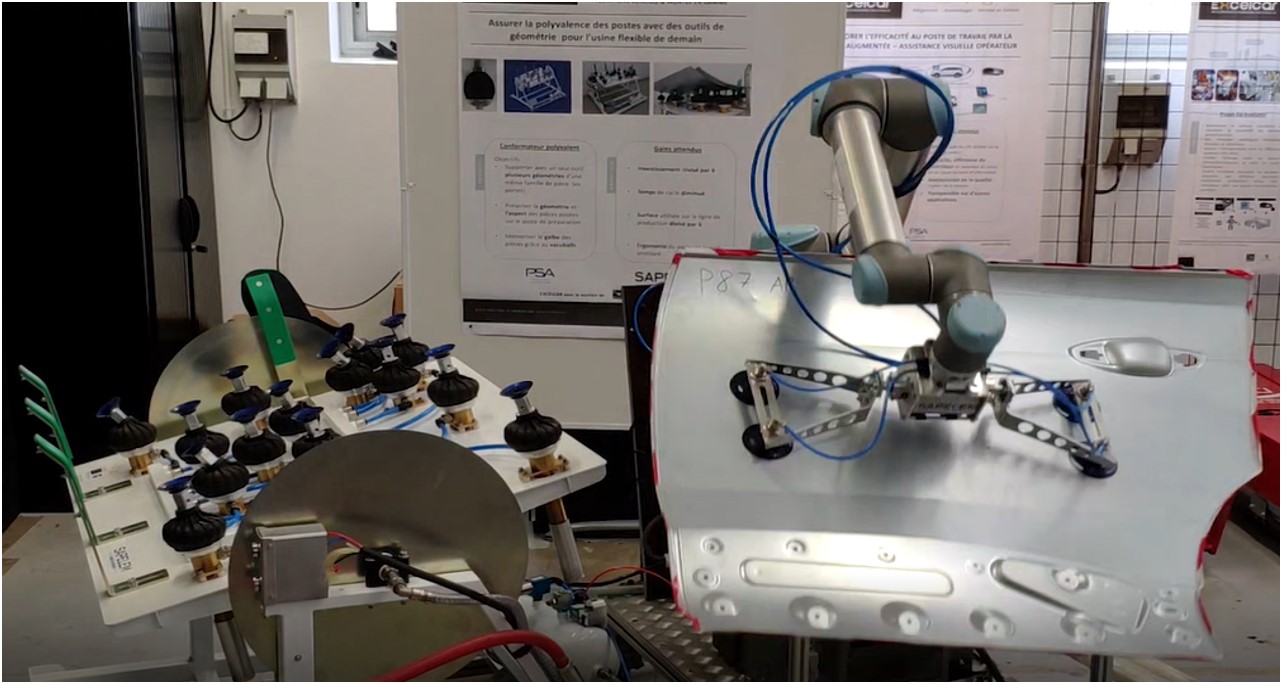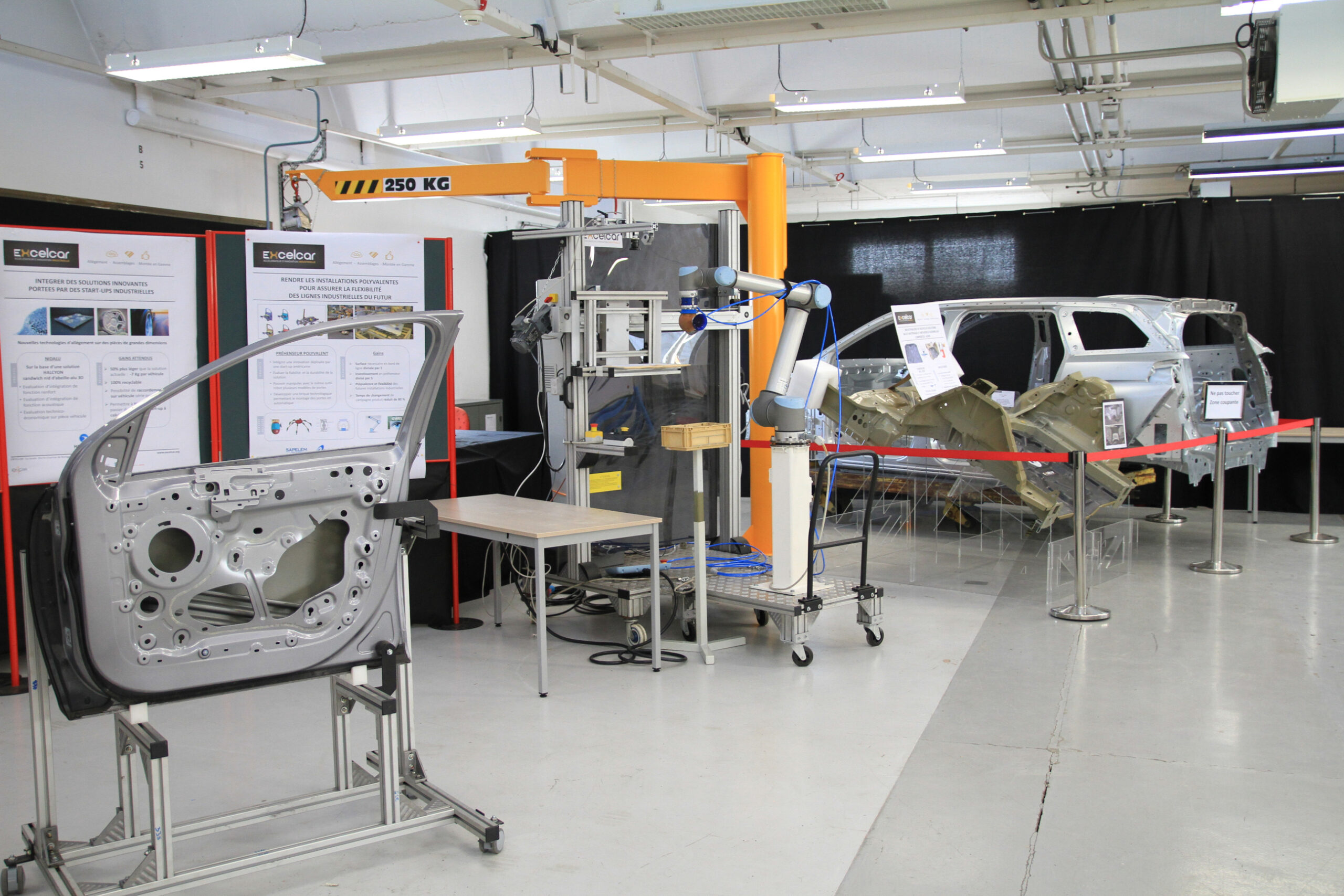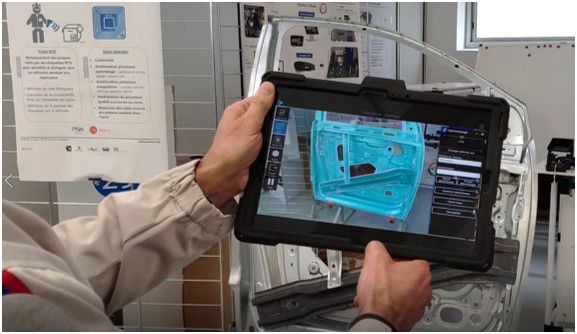SPAIN
GERMANY
FRANCE
ITALY
DENMARK
GREECE
Participating partners
The French cMDF is composed of three partners: Fablab Vosges, Materalia and Excelcar. The partners have the mission to support and facilitate the development of innovations with companies, entrepreneurs, or the general public.
Scope and purpose of the cMDF
The French cMDF aims to provide novel services to accelerate entrepreneurial projects dedicated to mobility. This includes various services offered by the cMDF members, such as design, prototyping, production of pre-series, rental of manufacturing equipment, co-design & prototyping workshops, and trainings in the use of the various equipment necessary for the production of the products. Furthermore, working with the French cMDF enables faster access to innovations, faster development of mobility device - from idea to product - and guarantees a more rapid identification of suitable partners and projects.
Expansion strategy
The French CMDF address multiples targets, including entrepreneurs, start-ups and SMEs; manufacturers and industrial stakeholders; fablabs and maker communities; consumers and the general public; business incubators and accelerators; and the scientific community.
The cMDF has started targeting fablabs, business incubators and industrial manufacturers in order to better define structured and precise services. The next step will be to engage with entrepreneurs and mobility projects for more concrete testings of the cMDF's skills and capabilities.
Key services
The main services offered by the French cMDF are:
|
Design to cost/ manufacture/ function Prototyping of mobility devices and automotive parts Production of pre-series Rental of manufacturing equipment and space |
Co-design workshops Customer experimentation workshops Training on prototyping and production equipment |



French cMDF use cases
UC1: Trainings digitalisation for fablabs and maker communities
Description of the use case
Currently, many fablabs tend to give fundamental and basic machine using trainings, CAD software design tutorials, and physical "Maker" certificate programmes, without being aware of the advantage of going online and using digitalisation tools that could help them save time and reach a much larger customer base. Taking advantage of the Digital Fablab Kit's tools, the French cMDF will group within its local partners (core cMDF), Fablabs and training centres to help them create online videos and tutorials, and give future makers, students, entrepreneurs and learners the chance to attend those trainings from a location they choose, and using agile methodologies that would eventually keep them concentrated and fully engaged in the trainings.
Objectives
The objectives of UC1 are to:
- Reduce the time spent in giving basic trainings and machine using instructions by digitalising them.
- Deploy user-centred trainings by making sure that the trainings are multiple and diverse.
- Improve the trainings' qualities and interactivity.
- Enlarge the customer base by going online and reaching potential local and European users.
Methodology
The French cMDF has already started engaging 2 fablabs in this use case by inviting them to join the core cMDF group. The main objectives remain to attract the highest possible number of fablabs in order to offer varied and rich trainings, including different levels and many topics and niches. Through the Digital Fablab Tool kit, the fablabs taking part in the French cMDF could upload specific trainings covering many technical domains and which the makers communities, entrepreneurs, and project holders would have access to, with respect to the their needs.
Expected results
- Increase in the fablab's trainings attendance.
- Ineffective training time reduced.
- Easy and fast access to the required training.
- The maker was able to complete a tutorial or training and advance with their project.
UC2: Co-development of mobility products
Description of the use case
The mobility sector has been advancing strongly in recent years. However it demands extremely high technical skills and expertises in, for example, CAD design, mechanical engineering, industrial prototyping, and manufacturing machines. Therefore, the cost behind all of these could be significantly high if not unaffordable. For this reason, the French cMDF is working on creating a local ecosystem of professionals that could valuably contribute to the different and necessary development steps of a mobility project. By doing so, each partner will offer its know how and technical capacity to cover all of the development process and reach a final product that meets user's expectations and with a relatively affordable cost.
Objectives
The objectives of UC2 are to:
- Reduce time to market by quickly finding the required service offerers and creating an agile and proactive ecosystem that could work together despite their different business models and ways of operation.
- User-centred product development, by testing the design/ physical prototype with makers and fablab users (potential future clients).
- Focus on the following aspects: cost, quality, time and technical specifications.
Methodology
Through the iPRODUCE OpIS platform, the project holder will get in touch with the french cMDF by starting to explain the project and its requirements and consult the competences of each partner. After the contacts are made and collaboration contracts are finalised and signed (regarding the service offer put on the table), each partner will then start working and developing their assigned technical task and generating solution ideas, eventually with the supervision of the project holder or entrepreneur (e.g., CAD design, 3D prototyping, testing of the product with potential customers, manufacturing, etc.). Step by Step, the process and development will be refined until the final product is reached and approved by the project holder.
Expected results
- Time to market reduced.
- Quick search for stakeholders is possible.
- An innovative process has been implemented where technical support and development are guaranteed.
- Possibility of going from idea to product effectively.
